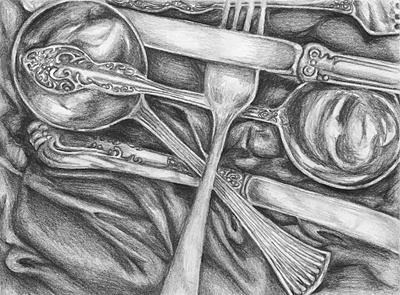All Nonfiction
- Bullying
- Books
- Academic
- Author Interviews
- Celebrity interviews
- College Articles
- College Essays
- Educator of the Year
- Heroes
- Interviews
- Memoir
- Personal Experience
- Sports
- Travel & Culture
All Opinions
- Bullying
- Current Events / Politics
- Discrimination
- Drugs / Alcohol / Smoking
- Entertainment / Celebrities
- Environment
- Love / Relationships
- Movies / Music / TV
- Pop Culture / Trends
- School / College
- Social Issues / Civics
- Spirituality / Religion
- Sports / Hobbies
All Hot Topics
- Bullying
- Community Service
- Environment
- Health
- Letters to the Editor
- Pride & Prejudice
- What Matters
- Back
Summer Guide
- Program Links
- Program Reviews
- Back
College Guide
- College Links
- College Reviews
- College Essays
- College Articles
- Back
Just Tossing It: America's Food Waste Dilemma
I’m sure many of you have seen it; the manager at the grocery store carting out boxes of cereal past their expiration date, the employee at the Pizza Hut throwing away anything that’s ten minutes “past its prime”, your friends at school dumping half their tray in to the garbage bin, or your Mom throwing away that box of Chinese Takeout from last week, or the brown banana. This is all food waste, and it’s one of the biggest problems facing America. Unfortunately, many Americans don’t
realize just how harmful food waste is to the environment, and just how many problems it causes! America needs to take a stand, and find a much more effective way of dealing with food waste, before the problem gets any worse.
Americans buy way more food than they need. It’s a common fact. Americans only need 4 billion pounds of food a year to meet the hunger requirements of every person, but in reality, we end up buying 350 billion pounds, and people STILL go hungry. Americans throw away between ¼ and ½ of their food, and waste millions of dollars. Why is it, that even though we throw away food, 30 million Americans are still going hungry on a regular basis? That’s a good question, and it has to do with how we deal with food waste.
Americans waste tens of millions of kilograms of safe and edible fresh food and groceries for reasons such as changed labeling regulations, which render the food “legally unsalable.” With all this food we could satisfy EVERY EMPTY STOMACH IN AFRICA. Wasting food squanders the time, energy and resources used to produce the food. Even restaurants are estimated to throw away more than 6000 tons of food each year. If Americans cut their food waste in half, it would reduce the country’s environmental impact by 25 percent. If we stopped throwing out edible food, the CO2 emissions would be equal to one in five cars off the road! As you can see, by throwing away all this food, and not composting it or using it as ingredients for later, we are damaging our planet greatly.
Now that you’ve learned the terrible facts about food waste you’re probably wondering “how can we stop it?” Well, it’s fairly simple. One of the first major steps America can do is to start composting, instead of sending the food to landfills. City’s could start having recycling bins just for food waste, and the food could be taken to be composted or broken down for biogas. San Francisco has already started doing this. By composting food we can reduce Methane emissions, resell the compost for farmers and crops, as well as break down the food to be made into biogas, which is a renewable energy that can be used for cars and could reduce CO2 emissions from 75 to 200 percent. The nitrogen in food would make it easy to compost quickly, and would help the planet immensely.
There are so many things we can do to help stop food waste. We can plan our meals, start backyard composting, encourage our cities to start curbside recycling pickups for food scraps, help the Food Rescue Organizations, and be more conscious about what we get, and what we throw away. Teens all across America can help stop world hunger, and stop the damaging Methane gases released from the food waste. Throwing it away isn’t the answer.

Similar Articles
JOIN THE DISCUSSION
This article has 4 comments.
13 articles 17 photos 102 comments
Favorite Quote:
Pain is inevitable. Suffering is optional.